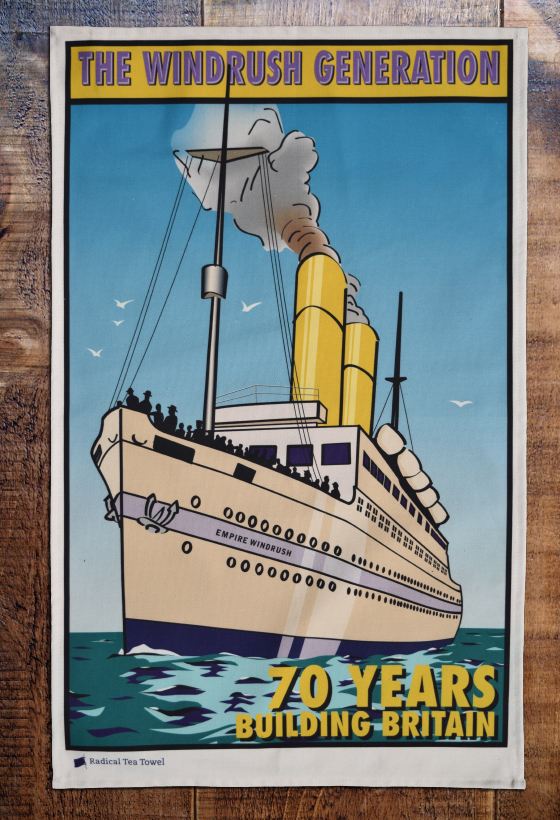How Cricket's Greatest Ever Side Stood up to Racism
Posted by Pete on 6th Aug 2018
The recent mistreatment of the Windrush Generation by the Home Office has been catching some much-needed headlines of late. But it's not as if Britain had been a paradise for residents of its former colonies until now.
Since people from the Caribbean began to come to the British Isles in the 1940s, they faced an often-hostile state and the verbal (and sometimes physical) violence of the forces of racist ignorance.
This became particularly intense in the 1960s and 1970s, with effectively racist laws against immigration (from both Conservative and Labour governments) in 1962 and 1968, Enoch Powell, and the rise of the fascist National Front.
But a little-known inspiration for black Britons in these trying times, worthy of commemoration on this the 56th anniversary of Jamaican independence, was the West Indies cricket team of the 1970s-90s.

The legacy of one of the great sporting sides
Now, cricket might not seem the typical medium for a bit of radical anti-racism, it being conventionally associated with England's stuffy ruling class.
But the way it was played by a formidable group of young, Caribbean men in the late twentieth century transformed the sport of empire into a rallying point of black emancipation across the post-war world - especially for their countrymen who'd moved to Britain.
Under the captaincy of a young Guyanese man named Clive Lloyd, a Windies (West Indies) team emerged in the mid-1970s built on an invincible combination of seriously fast bowling - from Michael 'Whispering Death' Holding (Jamaica), Andy 'Hitman' Roberts (Antigua), Colin Croft (Guyana), and later Joel Garner (Barbados) and Malcolm Marshall (Barbados) - with some fearless batting talent in Viv Richards (Antigua) and Gordon Greenridge (Barbados).
On the pitch, their record was unbelievable. Once fully into their stride, this Windies team went from February 1980 to March 1995 without losing a single test match - a feat unmatched in the history of the sport.
They were especially clinical against the white heartlands of the Empire from which they'd so recently broken free, with memorable victories against England in 1976 and 1984, and against Australia in 1979.
Off the pitch, they were equally - if not, somehow, more - impressive.
Taking a stand against racism
In 1983, for example, a South African businessman had the nerve to try to pay West Indies players to play a tour against the Apartheid regime's cricket team. The Windies were in the vanguard of the ongoing sporting boycott of that racist despotism so, while a few players sold out to the huge sums on offer, the best flatly refused.
Commenting on the fact that the Windies players who agreed to tour would be treated as 'honorary whites' by the South African authorities, Michael Holding wondered aloud "What is wrong with the colour of my skin? Why should they tell me I've got to be an honorary anything apart from what I am?"
Viv Richards, who was offered $1m to play in South Africa (an astronomical sum for anyone at the time, let alone underpaid West Indies sportsmen) and refused outright, remembered how "I felt seriously embodied with the folks who were struggling in South Africa."
Richards was told soon after by Desmond Tutu himself that the solidarity of the Windies team was greatly appreciated by the anti-Apartheid movement, and news of it had even reached Nelson Mandela in his prison cell.
It was a solidarity underpinned by a sense of black consciousness and anti-colonialism which many of the players had picked up from the Caribbean and the neighbouring USA since the 1960s.
Martin Luther King's civil rights movement had politically energised young black men across the West Indies, and Rastafari, pan-African socialism - most famously represented by Bob Marley and the Wailers - was spreading across the islands.
Viv Richards even wore a sweatband with the Rastafari tricolour when he went out to bat - green (representing the green lands of Africa), yellow (the gold stolen by empire), and red (the blood of slaves).
Unity through sport
This revered West Indies team, then, stands as a monument to the radical political potential of cricket and of sport in general.
In the same ways as Muhammad Ali, they're a historical landmark of the ongoing global fight against racism and empire - both incidentally through their clear demonstration of black talent, and actively through their self-conscious political agitation off the field of play.
To put this in the words of the great Trinidadian Marxist, CLR James, "What do they know of cricket, or anything, if it is walled off from every other aspect of life and struggle?"
